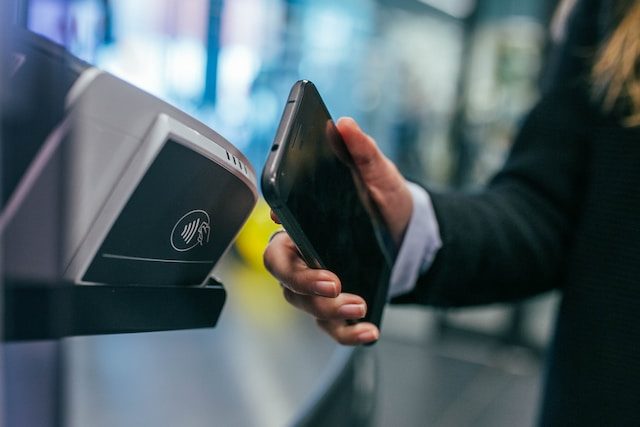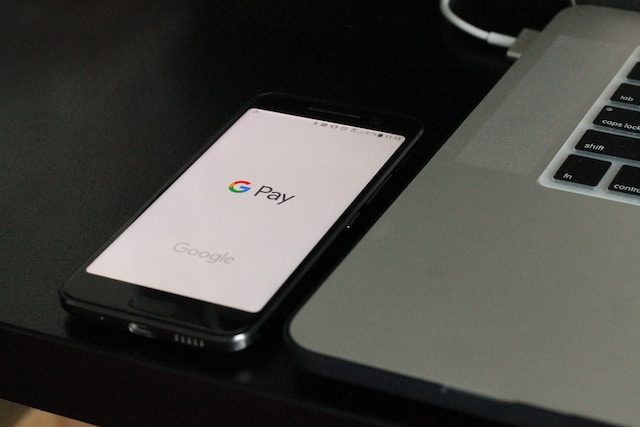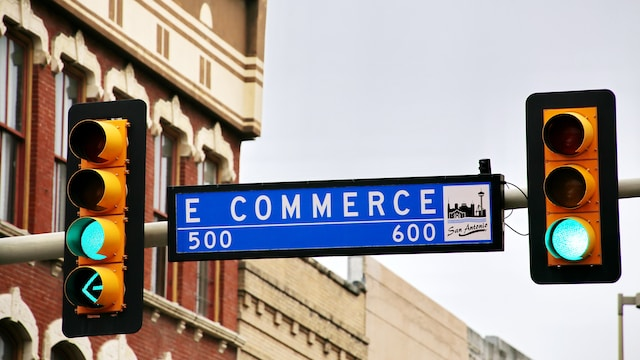What is an Ecommerce Payment Gateway?

Definition and Explanation of an Ecommerce Payment Gateway
A payment gateway is an online service that facilitates the processing of electronic payments made through a website or mobile app. It acts as a mediator between the customer’s payment information and the merchant’s bank account, enabling secure and seamless transactions.
Payment gateways are an essential component of ecommerce businesses, as they provide a secure and reliable means of accepting payments from customers. They are particularly important for online businesses that operate across different regions and currencies, as they ensure that payments and transaction fees are processed smoothly and efficiently.
Importance of Payment Gateways in Ecommerce

In the world of ecommerce, these payment gateways play a critical role in facilitating the exchange of goods and services. Without a reliable and secure payment gateway, it would be nearly impossible for online businesses to operate and process transactions effectively.
Payment gateways help to build trust between merchants and customers by providing a secure and reliable means of handling sensitive payment information. They also ensure that transactions are processed quickly and accurately, reducing the likelihood of errors or disputes.
Overview of Payment Gateway Processes and Functions
Payment gateways typically perform several key functions when processing payments for ecommerce businesses. These may include:
Capturing customer payment information, such as credit card numbers or bank account details.
Encrypting and securely transmitting this information to the merchant’s bank or payment processor.
Verifying the validity of the payment information and the availability of funds.
Facilitating the transfer of funds from the customer’s bank account to the merchant’s account.
Issuing confirmation messages to the merchant and customer indicating that the transaction has been completed successfully.
Payment gateways may also offer additional features and services, such as fraud detection and prevention, recurring billing, and support for multiple currencies and payment methods.
Overall, payment gateways provide a vital service for ecommerce businesses, enabling them to process payments securely and efficiently, and providing a key link between merchants and their customers.
Different Types of Payment Gateways

Hosted Payment Gateways
Hosted payment gateways are third-party services that handle the entire payment process on behalf of the merchant. When a customer makes a purchase, they are redirected to the payment gateway’s website to enter their payment information, which is then processed by the gateway.
Once the payment is complete, the customer is redirected back to the merchant’s website.
Hosted payment gateways are a popular choice for small businesses or those just starting out in ecommerce, as they require minimal setup and maintenance. However, they may not offer as much flexibility or customization as other types of gateways.
Examples of hosted payment gateways include PayPal, Stripe Checkout, and Authorize.net.
Self-hosted Payment Gateways
Self-hosted payment gateways are integrated into the merchant’s website or mobile app, allowing customers to enter their payment information directly on the site. These gateways typically require more setup and maintenance than hosted gateways, but offer greater flexibility and control over the payment process.
With self-hosted gateways, the merchant is responsible for managing and securing the payment information, as well as ensuring that the gateway is integrated correctly with their website or app.
Examples of self-hosted payment gateways include Braintree, Payflow Pro, and Worldpay.
API-linked Payment Gateways
API-linked payment gateways are integrated directly into the merchant’s website or mobile app via an application programming interface (API). This allows for more seamless and customizable processing, as the gateway can be integrated directly into the checkout flow and other parts of the site.
API-linked gateways typically require more technical knowledge and development expertise to integrate, but offer the most flexibility and control over the payment process.
Examples of API-linked payment gateways include Square, Stripe, and Authorize.net.
Mobile Payment Gateways

Mobile payment gateways are designed specifically for processing payments on mobile devices, such as smartphones and tablets. These gateways may use specialized apps or mobile-optimized websites to process payments, and may offer features like mobile wallets and near-field communication (NFC) payments.
Mobile payment gateways are particularly important for businesses that rely heavily on mobile commerce, such as app-based businesses and businesses that sell through mobile point-of-sale (mPOS) systems.
Examples of mobile payment gateways include Apple Pay, Google Pay, and Samsung Pay.
Virtual Point of Sale (VPOS) Payment Gateways
Virtual Point of Sale (VPOS) payment gateways are designed for businesses that accept payments over the phone or through mail order. These gateways allow merchants to enter payment information manually, using a virtual terminal that is accessed through the gateway’s website or app.
VPOS gateways may offer features like recurring billing and support for multiple payment methods, and may be particularly useful for businesses that operate in industries like healthcare or finance, where payments are often made by phone or mail.
Examples of VPOS payment gateways include BluePay, Payline, and Cayan.
Payment Aggregators
Payment aggregators are third-party services that allow multiple merchants to process payments through a single account. These gateways typically require minimal setup and maintenance, and may offer features like simplified pricing and quick account setup.
However, payment aggregators may not offer as much flexibility or customization as other types of gateways, and may not be suitable for businesses with high transaction volumes or complex payment needs.
Examples of payment aggregators include PayPal, Square, and Stripe.
Overall, the type of gateway that is best for your business will depend on your specific
Factors to Consider when Choosing a Payment Gateway

Choosing the right payment gateway is a critical decision for ecommerce businesses, as it can have a significant impact on the security, reliability, and efficiency of online processing. Here are some key factors to consider when choosing a payment gateway:
Transaction Fees and Pricing Models
One of the most important factors to consider when choosing a payment gateway is the transaction fees and pricing models offered by the gateway. Different gateways may charge different fees for each transaction, and may offer different pricing models based on factors like transaction volume, payment method, or geographic location.
It’s important to consider not just the transaction fees themselves, but also the overall pricing structure and how it will impact your business over time.
Payment Methods and Currencies Supported
Another important factor to consider when choosing a gateway is the payment methods and currencies supported by the gateway. Different gateways may support different payment methods, such as credit cards, debit cards, or mobile wallets, and may offer different options for processing payments in different currencies.
When choosing a payment gateway, it’s important to consider which payment methods and currencies are most important to your customers, and to choose a gateway that offers the most flexibility and convenience for your business.
Security Features and PCI Compliance
Security is a critical concern when it comes to processing payments, and it’s important to choose a payment gateway that offers robust security features and is compliant with industry standards like the Payment Card Industry Data Security Standard (PCI DSS).
Key security features to look for in a payment gateway may include encryption of payment data, fraud detection and prevention measures, and support for 3D Secure authentication protocols.
Integration and User Experience
Another important factor to consider when choosing a payment gateway is how easy it is to integrate with your ecommerce website or mobile app, and how seamless the user experience is for customers.
Some payment gateways may offer more user-friendly checkout flows, or may offer better integration with popular ecommerce platforms like Shopify or Magento. It’s important to choose a payment gateway that integrates smoothly with your existing ecommerce infrastructure, and that offers a positive user experience for your customers.
Customer Support and Reputation
When choosing a payment gateway, it’s also important to consider the level of customer support offered by the gateway provider, as well as their overall reputation in the industry.
Look for payment gateway providers that offer responsive customer support and clear documentation and resources, and that have a track record of reliability and trustworthiness in the industry.
Scalability and Flexibility
Finally, when choosing a payment gateway, it’s important to consider how scalable and flexible the gateway is, and whether it can accommodate your business’s growth and changing needs over time.
Look for gateways that offer flexible pricing and customization options, as well as robust APIs and integration capabilities that can help your business scale and evolve over time.
Overall, choosing the right payment gateway requires careful consideration of a range of factors, including pricing, security, flexibility, and user experience. By taking the time to evaluate different options and choose the best gateway for your business, you can ensure a secure and efficient payment process for your customers and help your business thrive in the world of ecommerce.
Popular Payment Gateways for Ecommerce Businesses

There are many payment gateway options available for ecommerce businesses, each with its own set of features and benefits. Here are some of the most popular online gateways being used by ecommerce businesses today:
PayPal

PayPal is a popular payment gateway that allows customers to make payments using a PayPal account or a credit card. It’s easy to set up and offers flexible pricing options, including transaction-based fees and no monthly fees for subscription plans.
PayPal also offers a range of security features, including encryption of payment data and fraud detection tools, and is widely accepted across many different ecommerce and credit card payments platforms.
Stripe
Stripe is a payment gateway that is known for its flexibility and customization options. It offers a wide range of payment methods and currencies, as well as robust APIs and integration options for ecommerce businesses.
Stripe also offers advanced security features, including two-factor authentication and fraud detection tools, and has a reputation for excellent customer support.
Authorize
Authorize is a payment gateway that is popular among small and mid-sized ecommerce businesses. It offers a range of payment options, including all major credit cards and debit cards, e-checks, and mobile payments, as well as advanced security features like tokenization and fraud detection.
Authorize also offers a user-friendly interface and a range of customization options for merchant account providers, making it a good choice for businesses that want flexibility and control over their payment processing.
Square
Square is a gateway that is designed for mobile commerce and small businesses. It offers a range of payment options, including credit and debit card payments, cards, Apple Pay, and Google Pay, and is known for its simple and user-friendly interface.
Square also offers advanced security features, including end-to-end encryption and PCI compliance, and is a good choice for businesses that want a straightforward and reliable solution.
Security Considerations for Payment Gateways

Security is a critical concern when it comes to using payment processing services, and it’s important to choose a gateway that offers robust security features and is compliant with industry standards like the Payment Card Industry Data Security Standard (PCI DSS).
Here are some key security considerations to look for when choosing a payment gateway:
Encryption of Payment Data
Payment gateways should use strong encryption to protect payment data from unauthorized access or theft. Look for the best gateways that use SSL or TLS encryption, and that have a strong track record of security and reliability.
Fraud Detection and Prevention
Payment gateways should also offer robust fraud detection and prevention tools, such as advanced machine learning algorithms, geolocation tracking, and two-factor authentication. These tools can help to detect and prevent fraudulent transactions, protecting both the merchant and the customer.
Tokenization
Tokenization is a process that replaces sensitive payment data, such as credit card numbers, with unique tokens that can be used to process transactions. This helps to protect payment data from unauthorized access or theft, as the tokens are not directly linked to the customer’s payment information.
PCI Compliance
Payment Card Industry Data Security Standard (PCI DSS) compliance is a key requirement for payment gateways. PCI DSS is a set of security standards established by the major credit card companies to ensure that merchants and gateways protect payment and transaction data, from unauthorized access or theft.
Look for gateways that are fully PCI compliant and that offer clear documentation and resources to help you maintain compliance as your business grows and evolves.
Overall, security is a critical consideration when choosing a payment gateway for your ecommerce business. By choosing a gateway that offers robust security features and is fully compliant with industry standards, you can help to protect your business and your customers from the risks of payment fraud and data theft.
Integrating a Payment Gateway into Your Ecommerce Website

Integrating a gateway into your ecommerce website can be a complex process, but following best practices can help to ensure a smooth and secure integration. Here are some key best practices to keep in mind:
Choose the right gateway for your business. Consider factors like pricing, security, and ease of integration, and select one that meets your specific needs and requirements.
Ensure that your website is secure and PCI compliant. Ensure that your website is fully secure and compliant with PCI DSS standards. This may involve implementing encryption, firewalls, and other security measures, as well as conducting regular security audits and assessments.
Work with a developer or development team with experience in gateway integration. Online payment gateway integration can be a complex process, and it’s important to work with a developer or development team with experience in integrating gateways into ecommerce websites. They can help ensure that the integration is done correctly and that all necessary security measures are in place.
Test the integration thoroughly. Before launching your ecommerce website, be sure to test the integration thoroughly to ensure that it is working properly and that there are no issues with processing or security. Conducting testing in a staging or test environment can help to identify and resolve any issues before they impact your live website.
Monitor your payment gateway regularly. Regular monitoring can help to identify and resolve any issues before they impact your business or customers.
How Payment Gateways Work in Ecommerce Transactions

When a customer makes a purchase on an ecommerce website, the payment gateway plays a crucial role in processing the transaction fee for the payment and facilitating the transaction. Here’s a brief overview of how gateways work in ecommerce transactions:
The customer enters their payment information, such as credit card details or login credentials for a digital wallet, on the checkout page of the ecommerce website.
The payment gateway encrypts the payment data and sends it to the payment processor, which verifies the payment details and ensures that the transaction is authorized.
If the transaction is approved, the payment processor sends the payment data back to the payment gateway, which then sends an approval or decline message to the ecommerce website.
If the payment is approved, the ecommerce website can then fulfill the order and provide the customer with confirmation of their purchase.
Throughout this process, the payment gateway serves as the intermediary between the ecommerce website, the payment processor, the merchant account and the customer’s financial institution, helping to ensure that the payment process is secure and efficient.
Mobile Payment Gateways for Ecommerce

As more and more consumers shop on their mobile devices, mobile payments have become an increasingly important part of ecommerce. Here are some key features of mobile payment gateways for ecommerce:
Support for mobile payment methods, such as Apple Pay or Google Pay, which allow customers to make purchases with a single tap or touch.
Integration with mobile-optimized websites and apps, providing a seamless and user-friendly checkout experience for customers.
Advanced security features, including encryption and two-factor authentication, to protect payment data and prevent fraud.
Support for mobile-specific features, such as near-field communication (NFC) payments or QR code scanning.
Mobile payments can help ecommerce businesses reach a wider audience of mobile shoppers, and can provide a fast and convenient checkout experience that can improve conversion rates and customer satisfaction.
International Payment Gateways and Cross-Border Transactions

For ecommerce businesses that sell to customers around the world, international payment gateways can help facilitate cross-border transactions and simplify the payment process. Here are some key features:
Support for multiple currencies, allowing customers to pay in their local currency and reducing the risk of currency conversion fees or errors.
Compliance with international regulations and security standards, such as the European Union’s General Data Protection Regulation (GDPR) or the Payment Card Industry Data Security Standard (PCI DSS).
Integration with popular global payment methods, such as Alipay or WeChat Pay in China, or iDEAL in the Netherlands.
Multi-lingual customer support, to help resolve issues or answer questions for customers around the world.
International payments can help ecommerce businesses expand their reach to new markets and customers, and can help to simplify the complex process of cross-border transactions. However, it’s important to choose a payment gateway that is specifically designed for international transactions and that can support the unique needs and requirements of global ecommerce.
Recurring Payment Solutions for Ecommerce Businesses

Recurring payments are an important feature for many ecommerce businesses, particularly those that offer subscription-based services or products. Here are some key features of recurring payment solutions for ecommerce:
Flexible billing schedules, allowing businesses to set up regular payments on a daily, weekly, monthly, or annual basis.
Automatic payment processing, reducing the need for manual intervention or oversight.
Customizable payment plans, allowing businesses to offer different pricing tiers or payment options to customers.
Support for multiple payment methods, including credit cards, debit cards, and digital wallets.
Recurring payments can help ecommerce businesses to streamline their billing processes and reduce administrative overhead, while providing a convenient and flexible payment option for customers.
Payment Gateway Support and Customer Service

When choosing a payment gateway for your ecommerce business, it’s important to consider the level of support and customer service offered by the payment gateway provider too. Here are some key features to look for in payment gateway support and customer service:
Responsive customer support, including email, phone, and chat support options.
Clear and detailed documentation, including user guides, FAQs, and developer resources.
Self-service tools and resources, such as online forums or knowledge bases, to help customers find answers to common questions.
Training and onboarding resources, to help businesses get up and running with the payment gateway quickly and easily.
Choosing a payment gateway with strong support and customer service can help to ensure a smooth and efficient payment process, and can provide peace of mind for businesses and customers alike.
Common Payment Gateway Issues and Solutions

Despite their importance in ecommerce transactions, payment gateways can sometimes encounter issues or errors that can cause problems for businesses and customers. Here are some common payment gateway issues and solutions:
Payment processing errors or declines, which may be caused by issues with the payment data, the customer’s financial institution, or the payment processor. To address these issues, businesses may need to review and verify the payment data, contact the customer’s financial institution, or work with the payment processor to resolve the issue.
Security breaches or data theft, which can compromise payment data and lead to fraudulent transactions or identity theft. To prevent these issues, businesses should work with gateways that offer strong security features and compliance with industry standards like PCI DSS.
Integration or compatibility issues, which may arise when integrating a payment gateway into an ecommerce website or platform. To address these issues, businesses may need to work with experienced developers or development teams, or consider switching to a different payment gateway that is better suited to their infrastructure and requirements.
By understanding these common payment gateway issues and taking proactive steps to address them, ecommerce businesses can help to ensure a smooth and secure payment process for their customers.
Payment Gateway Alternatives to Consider

While payment gateways are a popular and effective payment solution for many ecommerce businesses, there are also alternative payment solutions that may be worth considering. Here are some payment gateway alternatives to consider:
Digital Wallets: Digital wallets like Apple Pay, Google Pay, and PayPal can offer a fast and convenient payment option for customers, without the need for a traditional payment gateway. Digital wallets can also provide added security and privacy benefits, as payment data is encrypted and stored securely on the customer’s device.
Direct Bank Transfers: Direct bank transfers, also known as bank-to-bank transfers or electronic fund transfers, allow customers to transfer funds directly from their bank to the merchant’s account. This payment method can be cost-effective and secure, but may not be as fast or convenient as other payment options.
Cryptocurrencies: Cryptocurrencies like Bitcoin or Ethereum can offer a decentralized and secure payment option for ecommerce businesses and customers. While adoption of cryptocurrencies is still relatively low compared to traditional payment methods, it may be worth considering as a payment option for tech-savvy or cryptocurrency-friendly customers.
Mobile Carrier Billing: Mobile carrier billing allows customers to make payments for digital goods or services using their mobile phone bill or prepaid balance. This payment method can be a convenient and accessible option for customers who may not have access to traditional payment methods like credit cards.
By considering these payment gateway alternatives, ecommerce businesses can explore new payment options and potentially offer a better payment experience for their customers. However, it’s important to carefully evaluate the pros and cons of each payment solution and choose one that aligns with the needs and requirements of the business and its customers.


